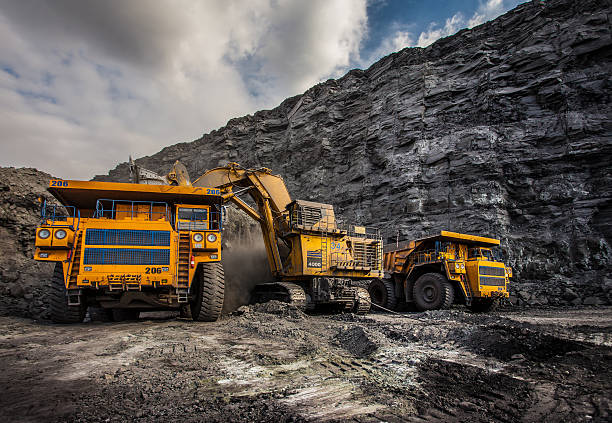Understanding Fossil Fuels: Origins, Consumption, and Future Impact:
Fossil fuels have been the cornerstone of global energy production for over a century. They power our homes, industries, and transportation systems. However, the reliance on fossil fuels has significant environmental and economic implications. This article explores what fossil fuels are, their origins, current consumption levels, and the potential future impact if we continue on the same path.
What Are Fossil Fuels?
Fossil fuels are natural resources formed from the remains of ancient plants and animals that lived millions of years ago. These organic materials were subjected to intense heat and pressure over geological time, transforming into coal, oil, and natural gas.
Types of Fossil Fuels:
- Coal:
- A solid fuel primarily used for electricity generation and industrial processes.
- Oil:
- A liquid fuel refined into gasoline, diesel, and other petroleum products used mainly for transportation and heating.
- Natural Gas:
- A gaseous fuel used for heating, electricity generation, and as an industrial feedstock.
Origins of Fossil Fuels:
Fossil fuels originate from the decomposition of organic matter in ancient swamps, oceans, and forests. Over millions of years, this organic matter was buried under layers of sediment, where it underwent chemical and physical changes due to heat and pressure.
Formation Process:
- Coal:
- Formed from the remains of land plants that accumulated in swampy areas. The process involves the gradual transformation of peat into lignite, sub-bituminous coal, bituminous coal, and finally anthracite, the highest grade of coal.
- Oil and Natural Gas:
- Derived from marine organisms that settled on the ocean floor. Over time, these remains were buried under sediments and transformed into hydrocarbons through heat and pressure.
How Much Fossil Fuel Do We Consume?
Global consumption of fossil fuels is immense, driven by the demands of modern civilization. According to the International Energy Agency (IEA), fossil fuels accounted for about 84% of the world’s primary energy consumption in 2019.
Statistics on Consumption:
- Oil:
- The world consumes approximately 100 million barrels of oil per day, with major consumers including the United States, China, and India.
- Coal:
- Global coal consumption is around 7.9 billion metric tons per year, primarily for electricity generation and industrial use.
- Natural Gas:
- The consumption of natural gas is about 4 trillion cubic meters annually, used for heating, electricity generation, and as a raw material in chemical production.
Future Impact if We Continue on the Same Path:
The continued reliance on fossil fuels poses significant environmental and societal risks. If current consumption patterns persist, the consequences could be dire.
Environmental Impact
- Climate Change:
- The burning of fossil fuels releases large amounts of carbon dioxide (CO2) and other greenhouse gases into the atmosphere. These emissions contribute to global warming and climate change, leading to rising temperatures, melting ice caps, and more frequent and severe weather events.
- Air Pollution:
- Fossil fuel combustion produces pollutants such as sulfur dioxide (SO2), nitrogen oxides (NOx), particulate matter (PM), and volatile organic compounds (VOCs). These pollutants can cause respiratory and cardiovascular diseases, premature deaths, and reduced quality of life.
- Environmental Degradation:
- Extracting and transporting fossil fuels can result in habitat destruction, oil spills, and water contamination. These activities disrupt ecosystems and harm wildlife.
Economic and Social Impact:
- Resource Depletion:
- Fossil fuels are finite resources. As easily accessible reserves are depleted, extraction becomes more challenging and expensive, leading to higher energy costs and economic instability.
- Energy Security:
- Dependence on fossil fuels, particularly oil, can lead to geopolitical tensions and conflicts over access to energy resources. Countries reliant on fossil fuel imports may face supply disruptions and price volatility.
- Public Health:
- The health impacts of air pollution from fossil fuel combustion result in increased healthcare costs and lost productivity. Communities near extraction sites often suffer from higher rates of illness and reduced quality of life.
Potential Solutions:
- Transition to Renewable Energy:
- Increasing investment in renewable energy sources such as solar, wind, hydro, and geothermal can reduce reliance on fossil fuels. These sources are abundant, sustainable, and produce little to no greenhouse gas emissions.
- Energy Efficiency:
- Implementing energy-efficient technologies and practices in industries, homes, and transportation can significantly reduce energy consumption and emissions.
- Carbon Capture and Storage (CCS):
- CCS technologies capture CO2 emissions from fossil fuel combustion and store them underground, preventing them from entering the atmosphere.
- Policy and Regulation:
- Governments can implement policies and regulations that encourage the reduction of fossil fuel use, promote renewable energy, and protect the environment. Carbon pricing, subsidies for clean energy, and strict emission standards are examples of such measures.
Fossil fuels have played a crucial role in powering modern society, but their environmental and social costs are becoming increasingly apparent. Continuing on the current path of fossil fuel consumption will exacerbate climate change, degrade public health, and strain economic stability. Transitioning to renewable energy sources, enhancing energy efficiency, and adopting sustainable practices are essential steps toward a more secure and environmentally responsible energy future.
